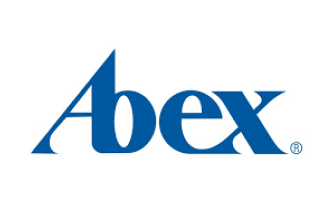
Sean Fitzgerald, PG, is a research geologist specializing in asbestos environmental studies.
Abex Corp. made asbestos friction products from 1926 through 1987. The company had 38,000 asbestos lawsuits pending in 2006. It reached an agreement in 2011 to resolve pending and future lawsuits with a settlement trust.

Abex Corporation is a friction products company that used asbestos in its brakes. Asbestos is naturally resistant to heat and was considered an ideal material for friction products. The mineral is also the main cause of mesothelioma cancer.
The company put asbestos into its brake shoes, brake pads and brake linings from the 1920s through the 1980s. Some reports suggest Abex also used asbestos in hydraulic systems, fluid power parts, aircraft control systems and components for railroad cars.
Abex’s Asbestos Products
In 1902, American Brake Shoe & Foundry Co. began casting brake shoes for railroad cars. It later expanded into making brakes for automotive vehicles and planes. The company changed its name to Abex in 1966 to reflect its growing friction product line. Asbestos continued to play a significant role in its products through the 1980s.
A series of mergers and acquisitions tied Abex to various companies in the 20th century including Pneumo Corp., Cooper Industries and Federal-Mogul Corp. Today, the company operates under the name Abex and continues to manufacture heavy-duty brakes.
People exposed to Abex’s asbestos products included factory workers and mechanics. Factory workers who manufactured Abex products handled raw asbestos. The mechanics who used their products inhaled asbestos dust. This put them at a higher risk of developing mesothelioma.
Workers were also exposed to asbestos through insulation at the Abex factory. Occupational exposure is the No.1 cause of asbestos-related deaths.
Workers Exposed to Abex’s Asbestos Products
Workers who came in contact with Abex’s asbestos products also unknowingly carried asbestos fibers home on dusty work clothes. This led to secondary asbestos exposure among family members who could also then develop mesothelioma.
Thousands of people filed lawsuits against Abex seeking compensation for medical expenses, lost wages and other related costs. Survivors continue to pursue mesothelioma compensation related to the effects of past exposure to Abex asbestos products.

Gain access to trust funds, grants and other forms of compensation for you or your loved ones.
Get Help NowAbex has faced thousands of personal injury and wrongful death mesothelioma lawsuits. Compensation awarded at trial has reached nearly $40 million in Abex asbestos lawsuits.
Notable Abex Verdicts and Settlements
These lawsuits claim Abex asbestos products caused workers to develop mesothelioma. Whether a personal injury or wrongful death lawsuit, they assert similar claims. These product liability lawsuits often claim negligent exposure and failure to warn about the dangers of asbestos.
Abex continues to handle asbestos lawsuits through the court system. Unlike other asbestos companies that funded a trust, Abex’s trust didn’t develop through bankruptcy courts. As a result, claimants still file lawsuits against Abex rather than a trust fund claim.
An asbestos settlement agreement created a trust fund to handle Abex mesothelioma and other asbestos-related claims in 2011. It’s different from other asbestos trust funds because it wasn’t created through Chapter 11 bankruptcy. The settlement agreement served to disentangle the asbestos liabilities connected to Abex’s former owners.
It began when Federal-Mogul filed for Chapter 11 bankruptcy protection in 2001. Abex products would have fallen under their trust, but past liability came into play. Cooper Industries held certain liabilities related to Abex’s historical asbestos use.
Cooper wanted to pay into the Federal-Mogul trust to resolve its asbestos liability. But that plan failed because Cooper wasn’t in danger of bankruptcy.
As a result of the settlement agreement, Cooper Industries contributed $307.5 million to the trust. Pneumo Abex’s parent company contributed about $20 million. The trust also transferred ownership of Pneumo Abex.
A dispute between PepsiCo Inc. and Eaton Corp. led to an injection of funds in 2018. In a lawsuit, Pepsi asserted the trust wasn’t sufficiently funded to handle future claims. The suit claimed Eaton, which acquired Abex’s liability through an acquisition in 2012, needed to contribute funds to the trust.
Pepsi officials said the lack of funds put Pepsi in a position to be sued in the future because of a prior indemnity agreement between Pepsi and Pneumo Abex. The court ordered Eaton to pay $293 million into the Pneumo Abex asbestos trust.
If you or someone you love has been diagnosed with mesothelioma from exposure to Abex products, legal help is available. You might be eligible to file a personal injury lawsuit.
If you lost a loved one, you may qualify to file a wrongful death claim. Compensation from claims can help with doctor bills and make up for lost income.
It’s important to file your claim before a specific date, which is called the statute of limitations. Each state has a rule that says you only have a certain amount of time to take legal action. How long you have depends on where you live.
Our Patient Advocates can answer any questions you may have about your legal options and financial assistance. They can also help you find the best lawyers for your type of exposure case. Our team can match you with law firms that can best help you through the legal process.
Recommended ReadingStay up-to-date on treatment, research, clinical trials, doctors and survivors
The information on this website is proprietary and protected. It is not a substitute for professional medical advice, diagnosis or treatment. Any unauthorized or illegal use, copying or dissemination will be prosecuted. Please read our privacy policy and terms of service for more information about our website.
This website and its content may be deemed attorney advertising. Prior results do not predict a similar outcome.
The Mesothelioma Center’s claim as the most trusted resource is based on our more than 150 5-star Google and BBB reviews. Our organization also helps more than half of all mesothelioma patients annually diagnosed.
Your web browser is no longer supported by Microsoft. Update your browser for more security, speed and compatibility.
If you are looking for mesothelioma support, please contact our Patient Advocates at (855) 404-4592
The Mesothelioma Center at Asbestos.com has provided patients and their loved ones the most updated and reliable information on mesothelioma and asbestos exposure since 2006.
Our team of Patient Advocates includes a medical doctor, a registered nurse, health services administrators, veterans, VA-accredited Claims Agents, an oncology patient navigator and hospice care expert. Their combined expertise means we help any mesothelioma patient or loved one through every step of their cancer journey.
More than 30 contributors, including mesothelioma doctors, survivors, health care professionals and other experts, have peer-reviewed our website and written unique research-driven articles to ensure you get the highest-quality medical and health information.
My family has only the highest compliment for the assistance and support that we received from The Mesothelioma Center. This is a staff of compassionate and knowledgeable individuals who respect what your family is experiencing and who go the extra mile to make an unfortunate diagnosis less stressful. Information and assistance were provided by The Mesothelioma Center at no cost to our family.LashawnMesothelioma patient’s daughter


Whitmer, M. (2025, May 13). Abex Corporation. Asbestos.com. Retrieved December 15, 2025, from https://www.asbestos.com/companies/abex-corporation/
Whitmer, Michelle. "Abex Corporation." Asbestos.com, 13 May 2025, https://www.asbestos.com/companies/abex-corporation/.
Whitmer, Michelle. "Abex Corporation." Asbestos.com. Last modified May 13, 2025. https://www.asbestos.com/companies/abex-corporation/.
An occupational scientist or another expert who specializes in occupational hazards reviewed the content on this page to ensure it meets current scientific standards and accuracy.

Sean Fitzgerald, PG, is a research geologist specializing in asbestos environmental studies.
Our fact-checking process begins with a thorough review of all sources to ensure they are high quality. Then we cross-check the facts with original medical or scientific reports published by those sources, or we validate the facts with reputable news organizations, medical and scientific experts and other health experts. Each page includes all sources for full transparency.
Please read our editorial guidelines to learn more about our content creation and review process.
